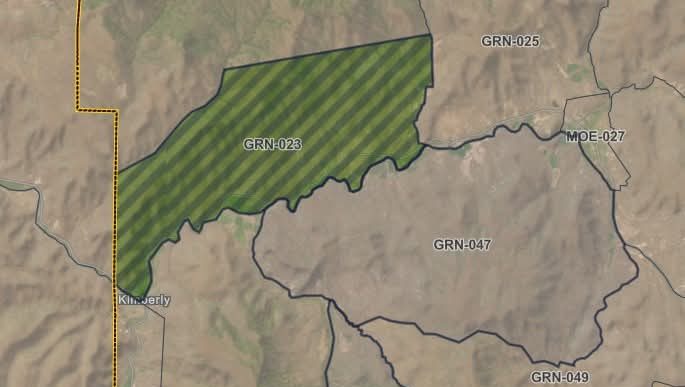Our View: Getting ahead of the antihunters
Published 12:00 pm Monday, February 13, 2023
However unlikely it might be that a majority of Oregon voters would agree to ban hunting, fishing, rodeos and most aspects of cattle ranching, it’s gratifying to see a state lawmaker taking steps to block such lunacy before it potentially infects Oregon.
Trending
State Sen. David Brock Smith, a Republican from Port Orford, is sponsoring House Joint Resolution 5. If the Legislature passes the bill, the state’s voters would decide in November 2024 whether to amend the Oregon Constitution and make Oregon the 24th state to have a right to hunt and fish constitutional amendment.
The amendment wouldn’t mean you can go after a buck deer or a bull elk whenever you have a hankering for fresh venison.
But it would thwart any outright ban on hunting and fishing as a way to procure food.
Trending
Smith’s bill was prompted by the campaign, which stalled in 2022 but could return in 2024, to ask voters to impose drastic limits on hunting, fishing, ranching and other activities under the specious guise of avoiding animal cruelty.
The initiative petition unveiled more than a year ago was dubbed by proponents, with the sort of turgid title that typically only government bureaucrats or politicians can muster, as the Abuse, Neglect and Assault Exemption Modification and Improvement Act.
The concept is more simply explained. The petition, if approved by voters, would remove exceptions to Oregon’s animal abuse laws that distinguish, as sensible people do, between actual abuse, which rightly is treated as a crime, and obviously noncriminal activities such as responsible hunting and fishing.
If those exceptions went away, hunters and anglers could potentially be prosecuted for shooting a deer or hooking a trout.
Although the campaign, organized by David Michelson, didn’t gather enough signatures to get the initiative on the November 2022 ballot, proponents have vowed to focus on 2024. The effort, originally Initiative Petition 13, is now IP-3.
This petition would pose a greater risk to the future of hunting and fishing were it limited to those two activities. It’s plausible, albeit not terribly likely, that there are enough voters in Oregon who know little about hunting and fishing, and who like children are susceptible to propaganda based on emotion rather than logic, that such an initiative could pass.
(This is the state, after all, where a majority of voters who turned out for the 2020 election decided that having some fentanyl pills or a little baggie of heroin was equivalent to topping the posted speed limit by 5 mph.)
But the proponents of IP-3 likely will be victims of their own excessive ambition. The initiative would have wider implications than hunting and fishing. It would also criminalize necessary (and nonabusive) aspects of ranching such as branding and dehorning cattle, castrating bulls and even artificial insemination.
Rodeos, too, would likely be outlawed.
It seems unlikely that a majority of voters would be willing to outlaw all of those things in one fell swoop.
That said, it’s gratifying that Smith is working to give voters a chance to head off such an unprecedented mistake.









